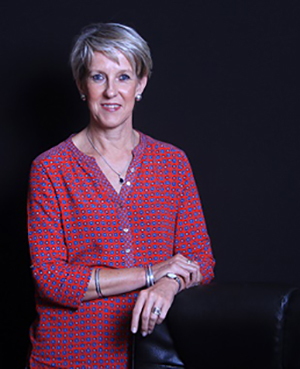
Producing over 40% of teachers in South Africa

Prof Geesje van den Berg (Curriculum and Instructional Studies, CEDU) says that we have to make sure that we adapt pedagogy accordingly, and, more importantly, that pedagogy drives teaching and learning, and not the technologies we use. "I believe that we live in an exciting time for distance education. Because the ODeL environment is fast-changing, it opens doors for great exploration and innovation in our pedagogical approaches."
Early on in her career at Unisa, she realised that distance education is vastly different from face-to-face teaching, says Geesje van den Berg, Professor of Curriculum and Instructional Studies in the College of Education (CEDU). Since then, she has immersed herself in the theory and practice of open, distance and e-learning (ODeL), with rewarding results.
In its widest sense, a career in ODeL entails teaching at an ODeL institution such as Unisa. Although initially this might sound quite simple and straightforward, ODeL is in fact a complex and very specialised field. Teaching at a distance without physical contact with students requires specific knowledge and skills. Knowledge of a discipline such as mathematics or economics - the main reason most academics were appointed in higher education - is not sufficient. Lecturers teaching at an ODeL institution need to know not only what to teach, but also how to teach. They have to structure their study materials and student learning differently from what they would in a face-to-face learning environment; they need to interact differently, and they need to be aware of their students’ level of autonomy.
Prior to starting my career at Unisa in 2002 as a lecturer in language education, I was a teacher, and so I didn’t know anything about distance education. During those years, distance education was synonymous with correspondence courses, and vastly different from today’s web-based model.
I must say that initially, when I had to develop course materials, the assistance of instructional designers helped me to understand how different distance education was from face-to-face teaching. Also, as I think most of us do, I learnt from my mistakes and built on my successes as a lecturer. But being a lecturer in ODeL also needs passion. I think it must be because of this passion that I had some very special opportunities:
This is a four-module certificate course on master’s level, and the knowledge and skills Unisa staff gain from completing this certificate are aligned with Unisa’s goal of becoming the leading ODeL teaching and learning environment for excellence in Africa. The courses are perfect examples of modelling quality, flexibility and technology-enhanced teaching and learning and student support. This will enable Unisa to produce sought-after graduates who have the attributes and competencies to contribute ethically and creatively to their local, continental and global contexts.
Feedback has been exceptionally positive, and 54 colleagues have completed the certificate so far. To me, this shows the willingness of staff to empower themselves in the theory and practice of ODeL.
My current research interest and publications are in the field of ODeL, with specific reference to student interactions. Based on Michael Moore’s theory of interaction, this acknowledges the fact that students have very specific needs and demonstrate particular behavioural patterns in their interactions with their lecturers, their peers, their study materials and the system (or technology) in distance education.
There are many advantages and opportunities. Firstly, I see ODeL as a niche area that has not been well researched and therefore has many unique opportunities - not only for me, but for interested colleagues in general. Unisa has gone through the five generations of distance education, which tells us about the evolving use of technologies: from a correspondence model to a model which is based on the interactive capabilities of the internet. This means that the institution has a wealth of collective knowledge and experience, and colleagues should make use of this.
Unisa, as a mega university with a history of more than 145 years, should take the lead in the field of ODeL as a field of study, not only locally, but also globally. For Unisa to stay relevant and competitive, it has to keep on offering high-quality distance education, with a focus on student support.
One of ODeL’s biggest challenges is the fact that residential universities are starting to offer online courses, sometimes claiming that this mode will replace ODeL. Some follow blended approaches, which make learning more flexible and might threaten the offering of fully distance education programmes.
Other possible challenges are related to technology. While ODeL becomes increasingly dependent on information and communication technologies (ICTs) to support its teaching and learning, we have to ensure that we continue to use low-cost, user-friendly and easily accessible technologies so that all students benefit optimally from an ODeL mode of teaching and learning.
Lastly, I have seen that we sometimes get carried away by modern technologies. We have to make sure that we adapt pedagogy accordingly, and, more importantly, that pedagogy drives teaching and learning, and not the technologies we use. I believe that we live in an exciting time for distance education. Because the ODeL environment is fast-changing, it opens doors for great exploration and innovation in our pedagogical approaches.
We all know that distance education has had a number of hurdles to overcome over a number of years. However, in my opinion, there are a range of reasons why ODeL contributes to the solution to problems in higher education in general, and specifically in South Africa:
* Interview by Clairwyn van der Merwe, Contract writer, Directorate of Research Support
Publish date: 2020-06-29 00:00:00.0